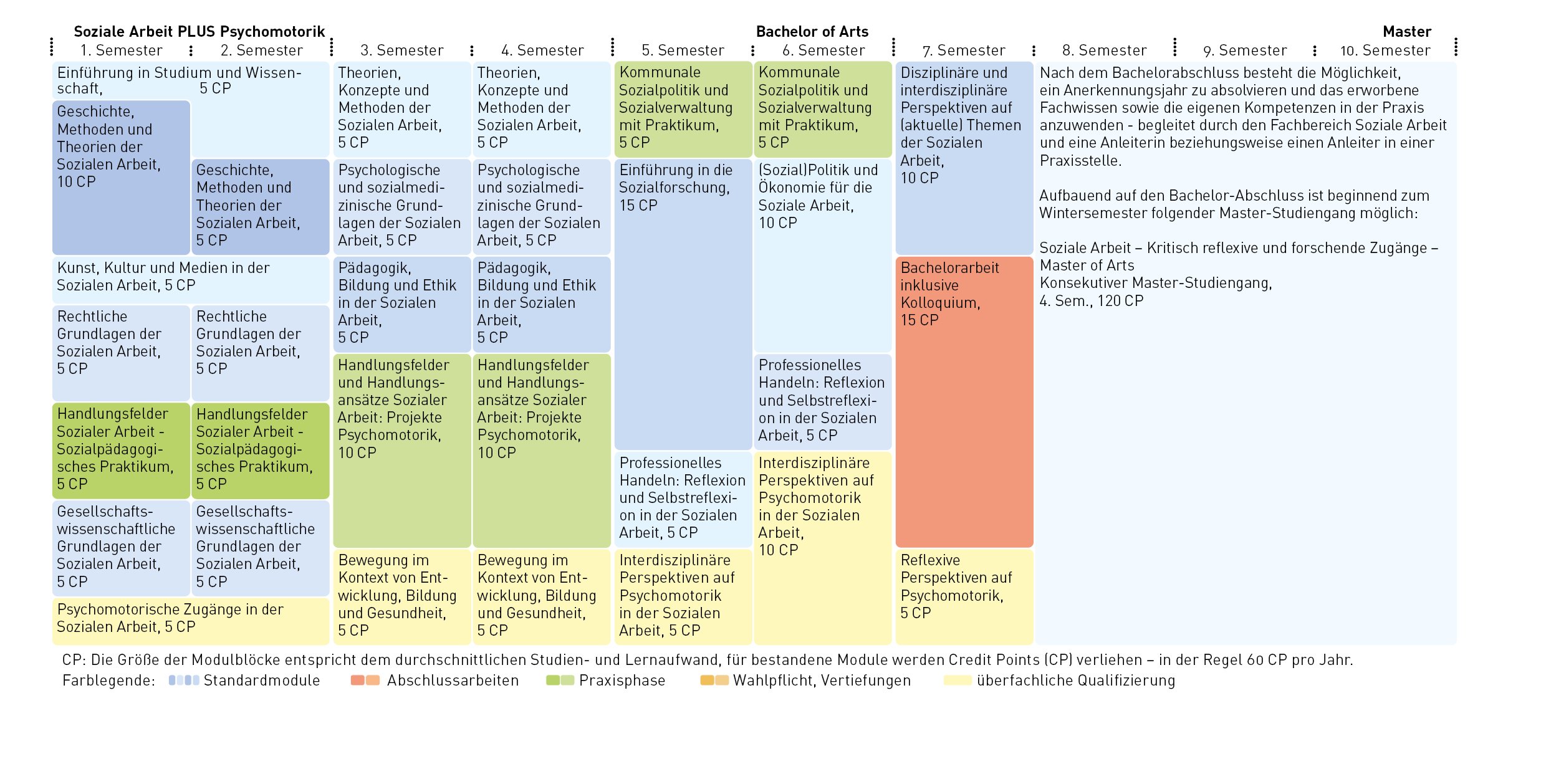
Social Work PLUS Psychomotricity (Bachelor of Arts)
| Semester | 7 Semester |
| Darmstadt | |
| Winter semester | |
| GER | |
| Without admission restriction. |
Content
Psychomotricity is a holistic, humanistic, understanding and resource-oriented approach to the development of people. Movement, perception, experience, body and play are of central importance for their emotional, social, cognitive and linguistic development. In a combination of knowledge, experience, reflection and transfer, students acquire professional competences with regard to psychomotor work in numerous fields of action in social work. The 7-semester programme combines a full Bachelor's degree in social work (175 CP) with content in psychomotricity (35 CP). The degree programme is scientifically sound and at the same time strongly practice-oriented. In addition to the courses, students complete 450 hours in supervised practice phases. Further information is available at the website of the Faculty of Social Work (German).
Perspectives
Graduates work in the following fields of activity, among others: Day care centres, early intervention, school social work, education and counselling centres, curative education and youth welfare, psychomotricity associations, independent association, independent practice, health promotion, prevention, Senior citizens' home, with refugees.
Building on the Bachelor's degree, the following Master's programme is possible:
Social Work: Critically reflective and empirical approaches - Master of Arts
Structure
Parallel to the contents of social work, theories, approaches and methods of psychomotricity are taught in the first academic year. At the same time, the students plan, experience and reflect on psychomotor practice sequences. In the second academic year, the focus is on the significance of psychomotricity for development, education and health. For this purpose, the students work with different groups of people in a one-year practical project. The third academic year focuses on interdisciplinary issues and aspects such as the preparation of expert reports, inclusion and prevention. In the seventh semester, the focus is on reflecting on one's own professionalisation process. The Bachelor's thesis is followed by an optional year of professional training. A detailed description of the study contents can be found in the module manual (German).
Access
The degree programme is not subject to admission restrictions (no NC). The following school-leaving qualifications, among others, apply as admission requirements:
- General higher education entrance qualification
- Subject-related higher education entrance qualification valid in Hesse
- an advanced technical college entrance qualification valid in Hesse
An internship before the start of the degree programme is not required. A detailed description of the admission requirements can be found in the Special Provisions of the Examination Regulations (German).
Contact
Prof. Dr. Holger Jessel
+49.6151.533-68515
holger.jessel@h-da.de
1
Consultation
Sprechstunde: nach Vereinbarung.
Bitte melden Sie sich per Mail zur Sprechstunde an. Sie erhalten dann eine Bestätigung.
